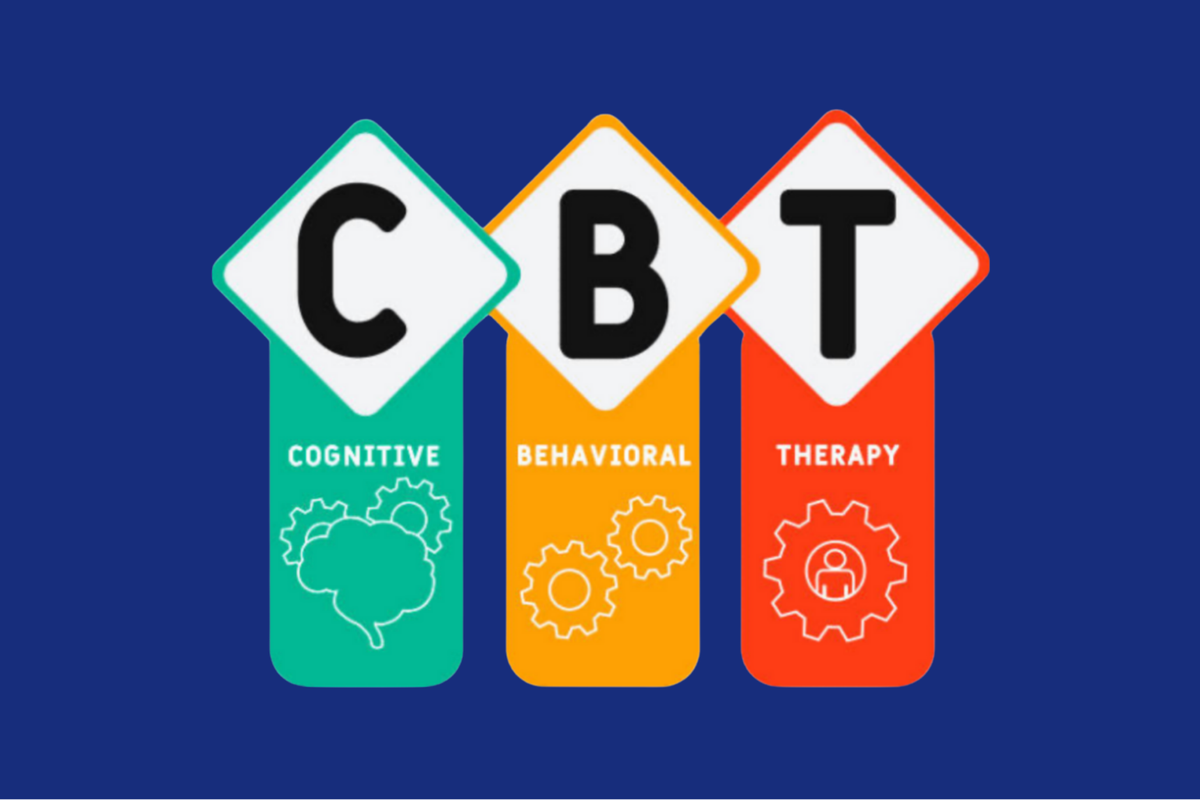Cognitive Behavioral Therapy with AI: A New Era of Mental Health Support

Cognitive Behavioral Therapy (CBT) is one of the most effective treatments for anxiety, depression, and stress management. With the rise of AI-powered therapy, CBT is being enhanced through AI-driven mental health tools, chatbots, and digital therapy programs.
AI-enhanced CBT provides personalized, accessible, and evidence-based mental health support, making therapy more scalable and available anytime. In this article, we’ll explore how AI is transforming CBT and whether it can be as effective as traditional therapy.
What is Cognitive Behavioral Therapy (CBT)?
CBT is a structured and evidence-based psychotherapy method that helps individuals identify and change negative thought patterns. It is commonly used for treating:
- Anxiety disorders
- Depression
- Panic attacks
- Obsessive-compulsive disorder (OCD)
- Post-traumatic stress disorder (PTSD)
CBT focuses on breaking negative cycles of thoughts, emotions, and behaviors by helping individuals develop healthier ways to cope with challenges.
What is Cognitive Behavioral Therapy?
With AI advancements, CBT techniques are now being integrated into digital platforms, making mental health support more widely accessible.
Platforms like Aitherapy use AI to deliver CBT-based strategies in real-time, offering immediate support for users.
How AI is Revolutionizing CBT for Anxiety, Depression & Stress
AI is enhancing traditional CBT techniques by using machine learning and natural language processing (NLP) to understand user emotions, analyze thought patterns, and provide tailored CBT exercises.
Key Benefits of AI-Powered CBT:
- 24/7 access to CBT therapy exercises without scheduling appointments
- Instant feedback and personalized mental health tracking
- Anonymity and privacy, making therapy more approachable
- Automated mood analysis, allowing AI to adjust therapy recommendations
AI-driven CBT tools can guide users through structured CBT sessions, offering step-by-step support for anxiety and stress management.
For example, Aitherapy offers AI-powered CBT strategies, allowing users to practice thought reframing and coping techniques anytime.
Top AI-Based CBT Therapy Apps & Tools
Several AI-powered mental health apps are integrating CBT techniques to help users manage their emotions. Here are some of the most effective AI-enhanced CBT tools:
- Aitherapy - AI-driven CBT therapy and mental health support.
- Woebot - AI chatbot designed for structured CBT-based conversations.
- Wysa - AI-powered therapy app offering CBT and mindfulness exercises.
- MindDoc - AI-based CBT journaling and mood tracking.
These tools allow individuals to engage in CBT techniques without the need for in-person therapy, making mental health care more convenient and affordable.
The Science Behind AI & Cognitive Behavioral Therapy
AI-powered CBT is built on scientifically validated therapy techniques, but how effective is it compared to traditional therapy?
Studies have shown that AI-assisted CBT can be effective for mild to moderate mental health concerns, particularly for:
- Managing generalized anxiety and stress
- Supporting individuals with mild depression
- Providing mental health education and self-guided coping strategies
However, AI-driven therapy is not a replacement for professional therapists, especially for individuals dealing with severe mental health conditions or trauma.
AI-powered CBT tools, such as Aitherapy, are best used as a supplement to traditional therapy or as a self-help option for daily emotional well-being.
How AI Therapy Personalizes CBT for Better Results
One of the most significant advantages of AI in CBT is personalization. AI therapy can adapt to a user’s emotional state, offering dynamic responses and tailored therapy exercises.
How AI Therapy Customizes CBT:
- Uses machine learning to analyze user conversations and detect emotional patterns
- Offers personalized CBT exercises based on individual progress
- Tracks mood changes over time to adjust therapy recommendations
This level of customization makes AI-powered CBT a flexible and accessible mental health resource for many individuals.
Does AI-Based CBT Work? Research & Clinical Findings
Scientific studies on AI-enhanced CBT indicate positive outcomes for individuals managing anxiety and mild depression.
Key findings suggest that:
- AI-powered CBT chatbots have helped users reduce symptoms of anxiety and stress.
- Digital CBT therapy tools can improve emotional resilience and self-awareness.
- AI-assisted interventions can increase adherence to CBT exercises by making them more engaging.
However, researchers emphasize that AI therapy should be used as a complementary tool rather than a substitute for human-led therapy sessions.
Comparing Traditional CBT vs. AI-Enhanced CBT Therapy
Traditional CBT Therapy
- Face-to-face sessions with a licensed therapist
- Personalized human interaction and emotional support
- Requires scheduled appointments and higher costs
AI-Powered CBT Therapy
- Available 24/7 for instant access
- Provides structured self-help exercises and mental health tracking
- More affordable and accessible than in-person therapy
Both traditional and AI-enhanced CBT have their place in mental health care. For serious mental health concerns, professional human guidance is essential, while AI therapy can serve as a valuable daily support system.
If you’re looking for an AI-assisted CBT platform, Aitherapy offers structured CBT therapy sessions powered by AI.
The Future of CBT: Can AI Improve Mental Health Outcomes?
AI-powered CBT therapy is continuously improving, with advancements such as:
- More natural AI-driven conversations that feel like talking to a real therapist
- Integration with wearable devices for tracking stress and anxiety levels
- Personalized AI recommendations that evolve based on user behavior
As technology advances, AI therapy will become even more effective at delivering personalized CBT interventions. However, human therapists will always remain essential for deeper psychological care.
Final Thoughts
AI therapy is enhancing traditional CBT techniques, making mental health support more accessible, affordable, and personalized. While AI-powered CBT tools are highly effective for managing stress, anxiety, and mild depression, they should be used alongside human therapy for more complex mental health concerns.
If you’re looking for AI-assisted CBT therapy, Aitherapy offers structured CBT exercises, emotional support, and self-help strategies to help you manage anxiety and improve well-being.
Have you talked with Aitherapy yet?





